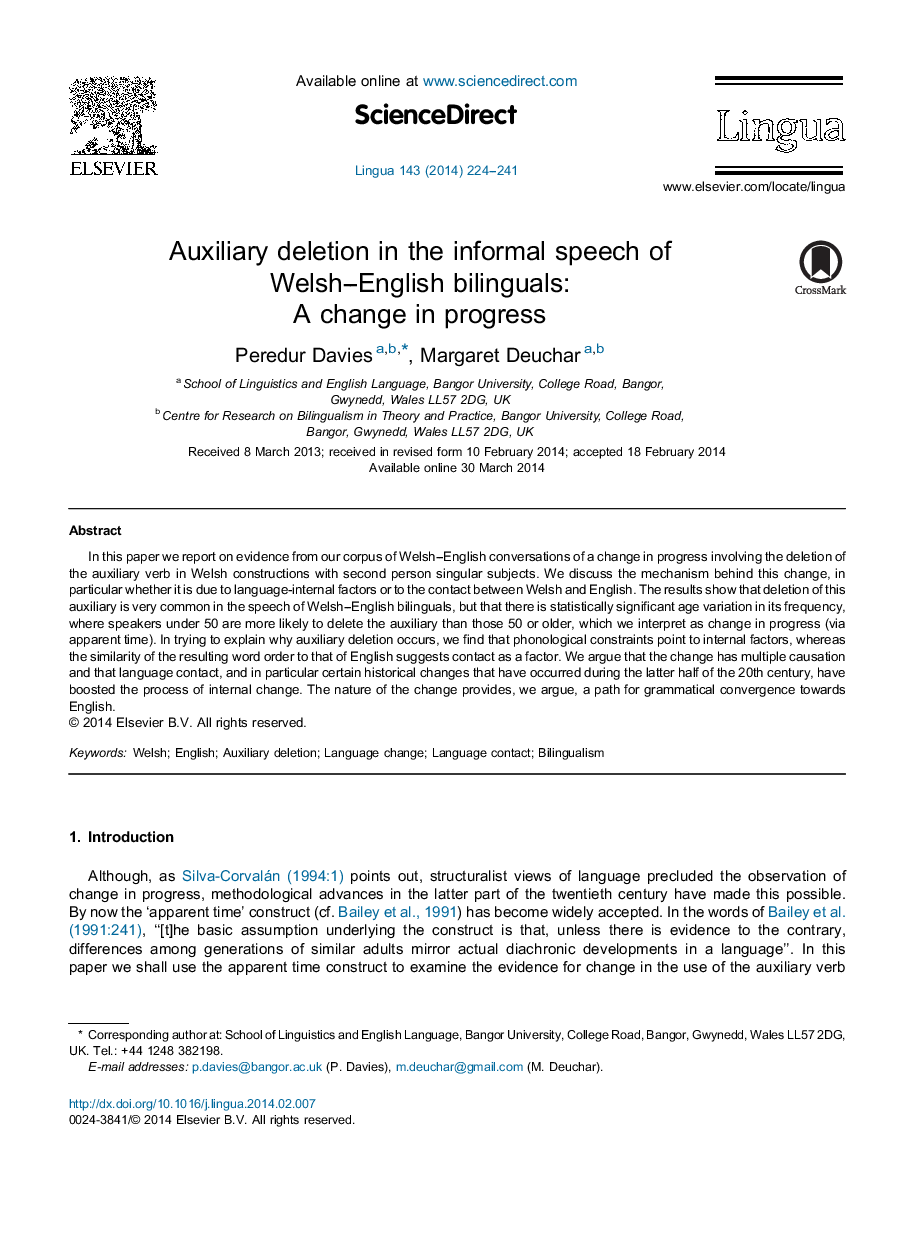| Article ID | Journal | Published Year | Pages | File Type |
|---|---|---|---|---|
| 935512 | Lingua | 2014 | 18 Pages |
•We analyze auxiliary verb deletion in the informal speech of Welsh–English bilinguals.•Deletion of the 2nd person singular present tense auxiliary wyt is highly frequent.•Speakers younger than 50 delete this auxiliary more frequently than older speakers.•We use this as evidence for a change in progress (increase in auxiliary deletion).•We ascribe the change to a combination of contact with English and internal factors.
In this paper we report on evidence from our corpus of Welsh–English conversations of a change in progress involving the deletion of the auxiliary verb in Welsh constructions with second person singular subjects. We discuss the mechanism behind this change, in particular whether it is due to language-internal factors or to the contact between Welsh and English. The results show that deletion of this auxiliary is very common in the speech of Welsh–English bilinguals, but that there is statistically significant age variation in its frequency, where speakers under 50 are more likely to delete the auxiliary than those 50 or older, which we interpret as change in progress (via apparent time). In trying to explain why auxiliary deletion occurs, we find that phonological constraints point to internal factors, whereas the similarity of the resulting word order to that of English suggests contact as a factor. We argue that the change has multiple causation and that language contact, and in particular certain historical changes that have occurred during the latter half of the 20th century, have boosted the process of internal change. The nature of the change provides, we argue, a path for grammatical convergence towards English.
